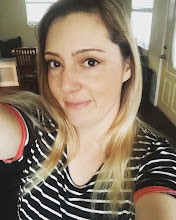In the first Noddings chapter, she first examines historical education philosophers and how their ideas have permeated through time. As she gets to Rosseau, she asks the question "Must they occur in cycles?" referring to the ideological swings in educational philosophy? This made me wonder how the cycles occur. In my own lifetime, the pendulum started swinging hard towards "accountability" first with Reagan in A Nation at Risk, then Clinton with the push for "certificate of mastery" instead of diplomas and the rise of magnet schools and arguments for vouchers starting to take hold. Then as I started my teaching career, No Child Left Behind was passed and all of the previous ideas solidified and embedded themselves in an insidious way. Only now, almost twenty years later from that point have we even begun to question the path that A Nation at Risk set us on. And it has felt like a behemoth task to even question it when very powerful people hold the reins. Especially our current Secretary of Education* who makes decisions that affect us all, I am sure has never examined any educational philosophy, as she has made it clear she does not believe in public education at all, and has no justification other than public education is "failing" (which means she also cannot read basic empirical research or refuses to do so). In that light, it feels like an exercise in futility to debate philosophical approaches when the people that control education in this country are not being equally thoughtful.
Regarding Noddings' first example about school vouchers, I found this article just this morning and basically sums up how I feel. It's not an attack on the parents themselves, but on their reasoning for acting as they do, but fits into what sociologists refer to as the theory of "laissez-faire racism." An attack on the argument and the inherent structures that cause parents to make the decisions they do. And it connects to my statements above---how can we (educators) have a debate among ourselves about how to educate students when the people controlling the system (legislators and bureaucrats) are still fighting us on the who by actively manipulating parents through fear?
Nevertheless, as the saying goes, she persisted. So I read and think on.
In this same way, on the Dewey chapter, Noddings talks about how Dewey's ultimate aim for education was growth for its own sake. And he received pushback, I believe, because the word "education" then (as now) implies a structure, with assumptions about specific outcomes that direct policy and decision making at every level. Had he used the word "learning" instead, maybe he would not have received so much pushback, and that particular theory would have been more universally accepted. Or, by using the word "learning" he could have pushed the definition of "education."
For example, when we speak of meeting students where they are in music (the modern translation of Dewey's experiential model), we talk about starting with music they listen to, such as hip-hop or rock, and then building from that point to the concepts we think they should know (usually musical literacy and classical Western music repertoire). The problem with that, though is, as Noddings says "teachers must ask where a given experience may lead." Without this mindfulness of the process and the end goal, you may end up with a class doing THIS. Therefore, using Dewey's dialectical method, can we resolve the seemingly opposite ends of music education by approaching students where they are with thoughtfulness so that we can accomplish two things: One, students have a voice in their own learning and two, check ourselves with our tendency to impose knowledge on students that may or may not be useful to them?
Subscribe to:
Post Comments (Atom)

No comments:
Post a Comment